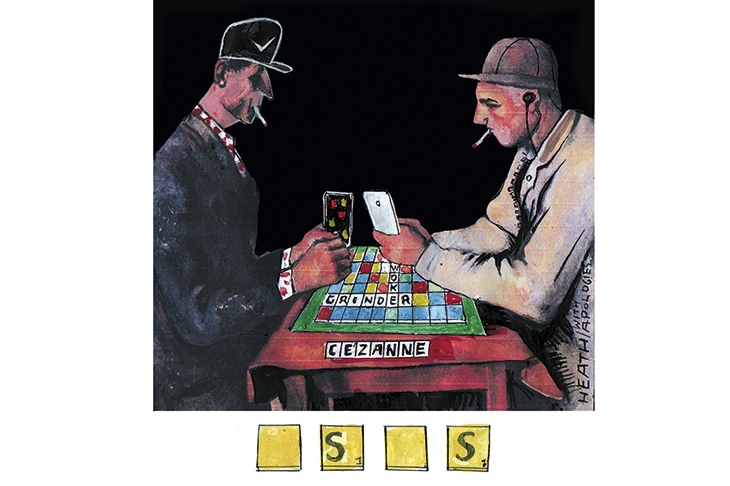When the top players gathered in Torquay last year for the World Scrabble Tournament (this year’s contest should have been this week, but has been cancelled thanks to you-know-what), it was to use ‘words’ like these in their games: dzo, ch, foyned, ghi…
Yep, that’s right; a whole lot of words that, let’s be frank about this, are not words. That’s why my spell-checker underlines them in red. The top players, you see, don’t win tournaments by being cleverer than the rest of us. They do it by memorising a long list of non-words so they can avoid the problems ordinary players encounter.
With O I I I I U U on the rack, most of us would forfeit our turn while muttering something rude. But the top player finds a convenient H on the board in easy reach of a red triple-word square and plays hioi.
Raise an eyebrow at ybet and the top player raps the cover of their dictionary and declares that it’s a word. Ask what it means (archaic term for a medieval Mongolian heraldic symbol? Variant dialect spelling of an obsolete Albanian monetary unit?) and they come over all evasive. You see, it’s not a word anyone ever uses — except when playing Scrabble. It’s a special Scrabble word. A special ‘how to get out of a really tight spot while feeling awfully superior about it’ Scrabble non-word.
Top players aren’t interested in words for communication, just for maximising their score. Indeed, believe it or not, some of the top players don’t speak very good English; they’re from Thailand or Malaysia and have memorised all these non-words with one goal in mind — winning tournaments.
It turns out that ybet is an archaic past participle of beat.








Comments
Join the debate for just £1 a month
Be part of the conversation with other Spectator readers by getting your first three months for £3.
UNLOCK ACCESS Just £1 a monthAlready a subscriber? Log in